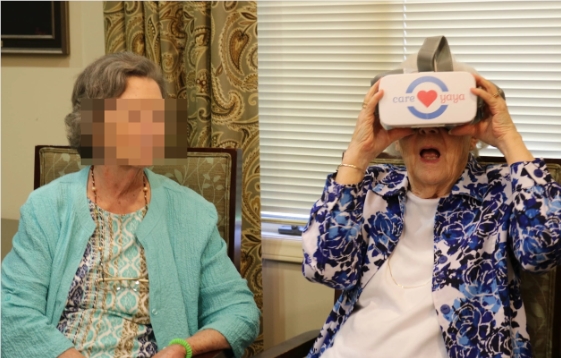The editor of Downcodes learned that CareYaya Health Technologies launched MedaCareLLM, a large-scale language model based on artificial intelligence, designed to improve the daily life of patients with dementia and Alzheimer's disease. The model is integrated into smart glasses and uses video data and facial and object recognition technology to provide real-time assistance to patients, such as identifying family and friends, reminding people to take medication, etc., thus reducing the burden on patients and caregivers. This innovative technology is expected to significantly improve the quality of life of millions of people with dementia and provide valuable data support for Alzheimer's disease research.
Recently, CareYaya Health Technologies launched an artificial intelligence (AI)-driven large-scale language model called MedaCareLLM, designed to help patients with dementia and Alzheimer's disease improve their daily lives. This technology is integrated into smart glasses and provides patients with real-time "life-changing" assistance through video data and facial and object recognition technology.

When patients wear the smart glasses, AI can recognize familiar faces. After identification, the system converts the person's information into prompts that are delivered directly to the wearer's ears through bone conduction headphones or hearing aids. This feature helps patients overcome confusion and embarrassment caused by memory loss, making it easier for them to recognize family and friends. In addition, smart glasses can read information from medicine bottles and remind patients when to take medicines, providing guidance on dosage and timing, reducing the risk of accidentally taking medicines and reducing the stress on caregivers.
CareYaya also develops advanced AI models by collecting video, audio and visual data captured by smart glasses to better identify and track patients' disease progression and daily dietary patterns. This technology is designed to improve the quality of life for people with dementia.
According to the Alzheimer's Association, there are currently nearly 7 million patients in the United States, and that number is expected to increase to nearly 13 million by 2050. Along with this, health and long-term care costs for people with dementia are expected to reach $360 billion in 2024 and approach $1 trillion in 2050.
Neal K. Shah, CEO and co-founder of CareYaya Health Technologies, said they hope to fill important gaps in dementia research, particularly among black older adults. Black older adults are twice as likely as whites to develop Alzheimer's disease and are currently relatively underrepresented in clinical trials and research. He noted that MedaCareLLM will help improve this situation and provide a more representative data set to advance Alzheimer's disease treatment research.
The development of MedaCareLLM was supported by the Johns Hopkins University Artificial Intelligence and Technology Collaborative Laboratory, the AgeTech Collaborative of the American Association of Retired Persons (AARP), and the National Institutes of Health. The technology is developed as part of the OpenMind project, which aims to build a multimodal dataset of cognitive and neural data in older adults. The company demonstrated this innovative product live at the TechCrunch Disrupt2024 event in October.
The emergence of MedaCareLLM brings new hope to patients with dementia and a new breakthrough in Alzheimer's disease research. It is believed that with the continuous development of technology, more similar innovative applications will benefit more patients and bring them a better life experience. We look forward to more technological innovations being invested in the field of elderly care in the future to create a better life for them.